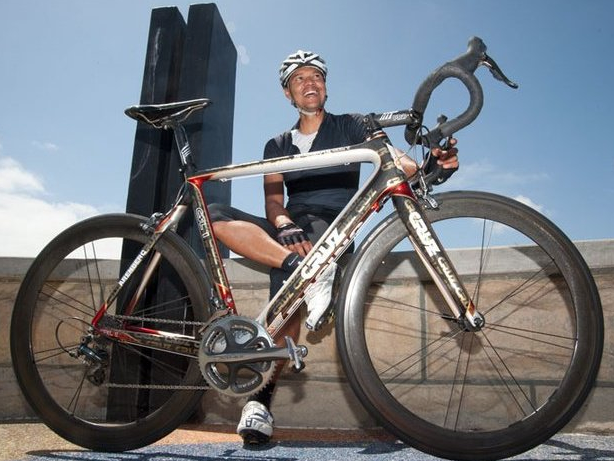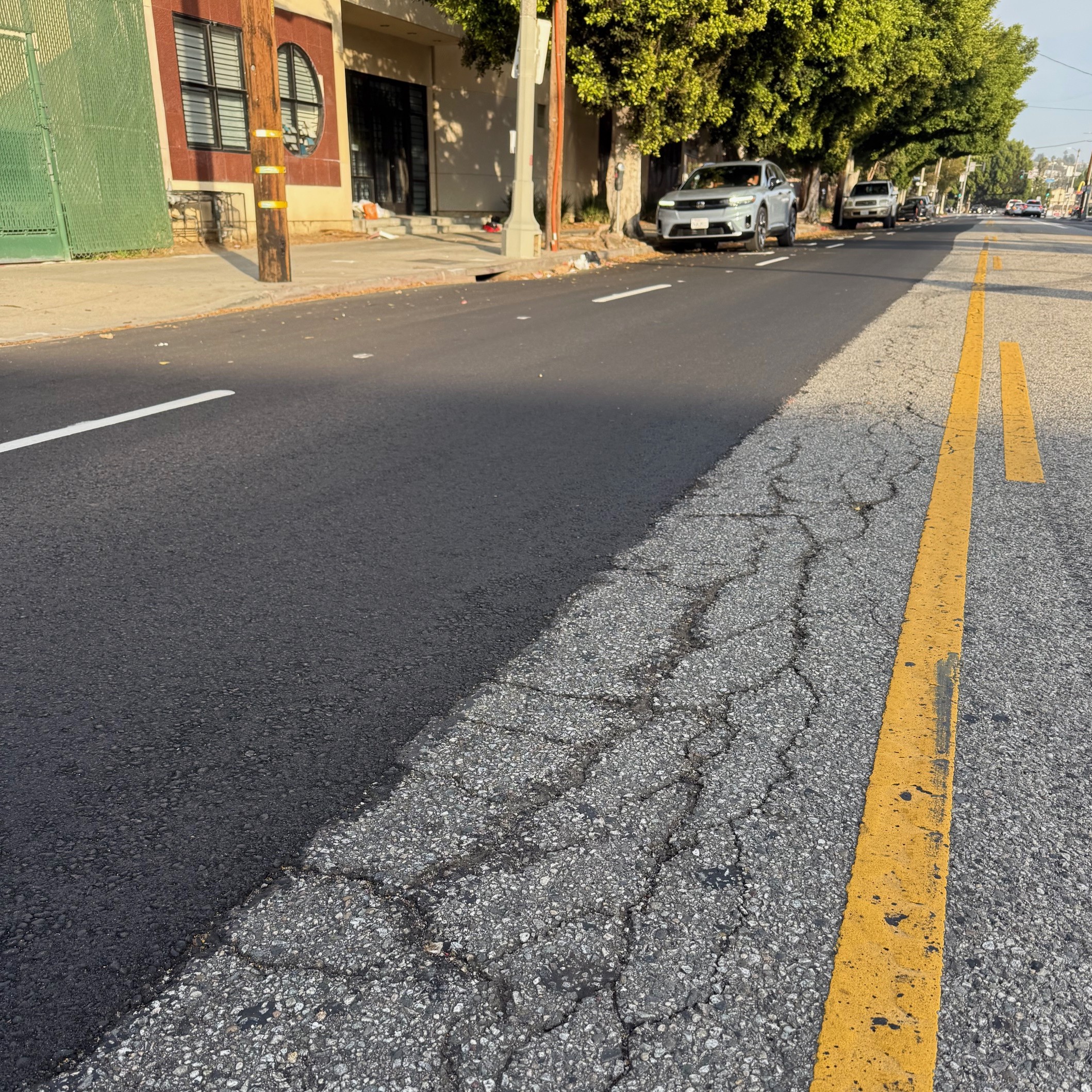Tony Cruz's affability is hard to discount because it comes in so many forms: he is humble, he is incredibly cultured, and his respect for making Long Beach more bike friendly supersedes attending a ribbon-cutting ceremony--he's actually altered policy.
Having moved to Long Beach in 1999 shortly after winning the USPRO National Criterium Championship and becoming professional, Cruz began to easily make friends and become known throughout the city after making Olympic trials in 2000.
In 2009, City Manager Pat West was particularly influenced to implement the Bicycle Master Plan after Sumi Grant, the city's Transportation Programs Officer, raised some $20 million in order to implement various bike programs. With the implementation of the plan, West asked Tony if he would be the Bike Ambassador. After forming a planning committee, Cruz set out on the beginnings of turning Long Beach into a national example for mid-sized biking cities.
"I found myself working with traffic," he said. "Y'know, designing routes, figuring out types of routes for the infrastructure we wanted to create because you name the country, I've ridden there. I've ridden dedicated sharrows, greenbelts, and all the variations of bike lanes."
Becoming politically submerged in the bike movement, Cruz came up with the most influential aspects of bringing both information and bike culture to the Long Beach masses: create a website. It sounds incredibly banal, butwww.bikelongbeach.org has been the central hub for expanding and creating the Long Beach bike culture.
And what it comes to for Tony, the success of Long Beach's biking programs is simple: he thinks we're the most pro-active.
"If you look at our sharrows or dedicated bike lanes, the 80 miles of bike lanes laid down in the past year and a half, the 50 more miles that are planned on being laid... We're really embracing the bike movement," he said. "And it's definitely challenging because it's a cultural shifter."
This shifting Cruz speaks of is more than just educating a community about bike culture and shifting drivers into being more aware of walkers and bikers; the shift is also on a city planning level that alters the culture of traffic engineering itself. With a group of engineers having been focused on motorized mobility for most of their careers--thereby centering their philosophy around wider lanes and limiting additional space--the bourgeoning bike culture significantly alters that.
"It's been a real challenge," Cruz stated. "And at first, you don't think of Long Beach but once you're in the biking community--you get it. There's still plenty of real estate to continue expanding on infrastructure. You can ride around all year, unlike Chicago."
Even further, Cruz's desire for implementing more sound biking infrastructure goes beyond a simple health initiative or even the fact that, bluntly put, bikes are growing in popularity. He understands that the current citizenship--who currently face the highest gas prices in history paired with the lowest amount of car ownership in the 18- to 29-year-old age bracket ever--have to find alternative forms of transportation because the luxury of a vehicle is just that: a luxury.
"It's incredibly tough right now and you see that with all these hybrids," he said. "People are trying to find ways to save money and that is, in my opinion, is the reason why biking is in a boom right now. Parents are less likely to get a big SUV and drive somewhere, are less likely to be able to afford a car for their kids."
Cruz holds faith and hope for Southern California to become more bike friendly, elaborating his point that even with the decline of car ownerships, Southern Californians have a deep pride for their own space and getting from, when they want, Point A to Point B. When it comes down to it, we're an impatient bunch--and traffic, contrary to common myth that making more lanes will decrease it, will only become exacerbated as the population increases and space diminishes.
"So people will cling to their bikes," Cruz said happily.
One can only hope.






